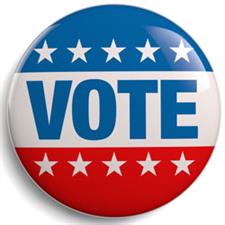Subscribe for Weekly Updates

Pennsylvania Primary Prep for CPAs
 By Alexandra Fabian, PICPA manager, government relations
By Alexandra Fabian, PICPA manager, government relations
The COVID-19 pandemic has affected every aspect of our lives – including the upcoming primary election. The Pennsylvania primary was originally scheduled for April 28, but it was postponed to June 2 to ensure that election officials and voters can prepare for a safe election.
As we grapple with the ongoing effects of COVID-19, it is important to remember that our votes matter. Elections are an essential part of the democratic process. Not only is 2020 a presidential election year, but there are also many other critical races happening, including U.S. Congress, statewide offices, and the state legislature.
 Pennsylvania holds closed primary elections, meaning you must be a registered member of a party to vote for that party's candidates. For example, you could not vote in the Republican primary unless you are a registered member of the Republican Party. The candidates who receive the highest number of votes in each party’s primary will be the nominee representing their respective party for that office on the November election ballot.
Pennsylvania holds closed primary elections, meaning you must be a registered member of a party to vote for that party's candidates. For example, you could not vote in the Republican primary unless you are a registered member of the Republican Party. The candidates who receive the highest number of votes in each party’s primary will be the nominee representing their respective party for that office on the November election ballot.
Role of CPA-PAC
PICPA’s political action committee, the Certified Public Accountant Political Action Committee (CPA-PAC) plays an important role in the political landscape, especially in election years.
CPA-PAC is a nonpartisan, member-managed organization representing CPAs in public practice, industry, and government. CPA-PAC, the only PAC to specifically represent the interests of Pennsylvania CPAs, prides itself on taking a nonpartisan, facts-based stand on a variety of issues.
The CPA-PAC goes through a well-defined budgeting process to allocate funds at the beginning of each calendar year to be used to support campaigns for office. The CPA-PAC board – a nonpartisan committee responsible for the generation and distribution of funds to state political candidates who support the CPA profession – earmarks estimated contributions with the intent of supporting specific groups of candidates (i.e., state House and Senate leadership, CPA legislators, key committee members, open seats and challengers, etc.). The PICPA government relations team cannot stray from the parameters designated by the CPA-PAC board without the committee’s formal approval.
Charles Waring, vice chair of the CPA-PAC board, explains his reason for donating to the CPA-PAC through both his time and finances: “I want to ensure that I contribute to the collective PICPA members’ voice in Harrisburg, where decisions that affect our communities, clients, firms, and families are made.”
CPA-PAC contributions, in concert with PICPA’s own advocacy efforts, safeguard the profession’s future by providing a voice in Harrisburg. This enhances the efforts of the PICPA government relations team, which works with CPAs and legislators to engage in the process.
Overview of 2020 Elections
The primary election is an opportunity for voters to select their political party’s nominees for various elected offices. Please review PICPA’s Primary Election Guide for a comprehensive overview of key races before casting your ballot.
- U.S. House – All 18 of Pennsylvania’s U.S. Congressional seats are up for reelection.
- State Executive Offices – Three statewide executive offices are up for reelection: state auditor general, attorney general, and treasurer.
- Pennsylvania Senate – 25 of the 50 seats in the Pennsylvania Senate are up for reelection
- Pennsylvania House – All 203 seats in the Pennsylvania House of Representatives are up for reelection.
Vote by Mail
On Oct. 31, 2019, Gov. Tom Wolf signed Act 77 of 2019 into law. The election reform law made significant improvements to Pennsylvania’s election process, including more convenient and secure voting. Pennsylvanians now have the option to vote by mail without providing any reason or excuse. This makes voting much more accessible to Pennsylvanians who might be unable to vote in person on election day. While passed before the pandemic, in the context of COVID-19 vote-by-mail makes it possible for all Pennsylvanians to safely cast their ballot from home. You can apply online for a mail-in ballot, but you must do so by Tuesday, May 26, 2020, for the primary election.
Vote in Person
While the spread of the coronavirus has been swift and unpredictable, we anticipate you still will be able to vote in person at your local polling place on primary election day on Tuesday, June 2, 2020. Polls are open from 7:00 a.m.-8:00 p.m. You can find your polling place online if you need assistance.
Feel free to contact PICPA’s government relations team at governmentrelations@picpa.org if you have questions about our voting guide or the upcoming primary election.
Please, don’t forget to vote!
Sign up for weekly professional and technical updates in PICPA's blogs, podcasts, and discussion board topics by completing this form.







Leave a commentOrder by
Newest on top Oldest on top